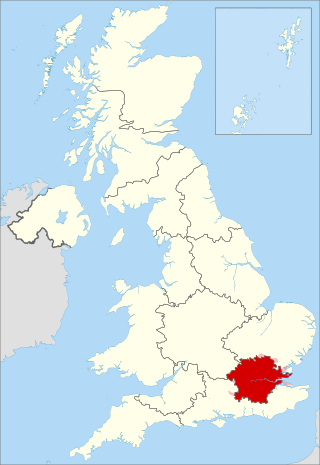Granada plc was a British conglomerate best known as the parent from 1954 to 2004 of the Manchester-based Granada Television.

The Independent Television Commission (ITC) licensed and regulated commercial television services in the United Kingdom between 1 January 1991 and 28 December 2003.

ITV1 is a British free-to-air public broadcast television channel owned and operated by the British media company ITV plc. It provides the Channel 3 public broadcast service across all of the United Kingdom except for the central and northern areas of Scotland where STV provides the service.

ITV Westcountry, formerly known as Westcountry Television and Carlton Westcountry, was the ITV franchise holder for the South West of England, covering Cornwall, Devon, Isles of Scilly, southern and western Somerset and western Dorset. The company replaced its predecessor, TSW, from 1 January 1993. The station was owned and operated by ITV plc under the licensee of ITV Broadcasting Limited.

Associated Television was the original name of the British broadcaster ATV, part of the Independent Television (ITV) network. It provided a service to London at weekends from 1955 to 1968, to the Midlands on weekdays from 1956 to 1968, and to the Midlands all week from 1968 to 1982. It was one of the "Big Four" until 1968, and the "Big Five" after 1968, that between them produced the majority of ITV networked programmes. In 1982, ATV was restructured and rebranded as Central Independent Television, under which name it continued to provide the service for the Midlands.

ITV Central, previously known as Central Independent Television, Carlton Central, ITV1 for Central England and commonly referred to as simply Central, is the Independent Television franchisee for the Midlands. It was created following the restructuring of ATV and began broadcasting on 1 January 1982. The service is owned and operated by ITV plc under the licensee of ITV Broadcasting Limited. Historically Central made a major contribution to the ITV network schedule – especially in entertainment and drama – but today its main responsibility is the regional news service.

Carlton Television was the ITV franchise holder for London and the surrounding counties from 9.25am every Monday to 5.15pm every Friday. The company is now managed with London Weekend Television as a single entity, but the two companies are still separately licensed. The station is owned and operated by ITV plc under the licensee of "ITV Broadcasting Limited". Carlton has been branded on air as "ITV1" since 28 October 2002. Carlton Television Ltd, the original holder of the licence, has since been dissolved. Carlton UK Television Limited however is now known as ITV Consumer Limited and legally operates ITV plc's websites. As Carlton's name has no relation to its region, its on-screen identity has been completely removed. Other regions have kept their original company name as a region name and in their local news name.

ITV plc is a British media company that holds 13 of the 15 regional television licences that make up the ITV network, the oldest and largest commercial terrestrial television network in the United Kingdom.

ITV Anglia, previously known as Anglia Television, is the ITV franchise holder for the East of England. The station is based at Anglia House in Norwich, with regional news bureaux in Cambridge and Northampton. ITV Anglia is owned and operated by ITV plc under the licence name of ITV Broadcasting Limited.

The Incorporated Television Company (ITC), or ITC Entertainment as it was referred to in the United States, was a British company involved in production and distribution of television programmes.

The London Studios in Lambeth, Central London was a television studio complex owned by ITV plc and originally built for London Weekend Television. The studios were located in Central London, on the South Bank next to the IBM Building and the Royal National Theatre. The building was set on 2.5 acres of land and was 24 floors high. The London Studios closed on 30 April 2018. Many ITV programmes now come from Television Centre in White City, London.
The history of ITV, the United Kingdom and Crown Dependencies "Independent Television" commercial network, goes back to 1955.
The ITV television network in the United Kingdom began as a group of regional stations, each with their own identities. Each station used its own idents to create an individual identity.
Michael Philip Green is an English businessman and psychotherapist, who is the owner of Tangent Communications. He was previously the chairman of Carlton Communications, until it merged with Granada to form ITV plc.

STV Group plc is a media company based in Glasgow, Scotland. Beginning as a television broadcaster in 1957, the company expanded into newspapers, advertising and radio; after completing a restructuring in 2010, STV Group is active in broadcast television, video-on-demand and television production. The company is a constituent of the FTSE SmallCap Index.
The ITV network of the United Kingdom began in 1955 as a network of independent broadcasters, each responsible for its own advertising. In 1982, when the Channel 4/S4C network launched, the regional ITV companes also began providing the advertising content for the new network, with each company covering the same transmitter area for Channel 4 as they did for ITV. Each station had a monopoly over TV advertising within its own broadcast area, thus enabling many stations to charge high prices for slots. Over the course of the 1980s an increase in competition from cable and satellite systems and from Channel 4, caused a decrease in advertising revenue for many ITV stations.
This is a timeline of the history of the British television network ITV.
This is a timeline of the history of the British broadcaster Meridian Broadcasting. It has provided the ITV service for the South and South East of England since 1993.
This is a timeline of the history of the British television service HTV West. "HTV West" and "ITV West" were the service names for the ITV service in the West of England from 1970 until 2009, after which the service name "ITV West Country" has been used across the West and South West of England. The "West" service was a sub-region of the franchise for Wales and the West.
This is a timeline of the history of Carlton Television, and of its former owner Carlton Communications. Carlton Television has provided the ITV service for London on weekdays since 1993, and Carlton Communications took over the services for the Midlands, South West England, the West of England and Wales before merging with Granada plc to form ITV plc.











